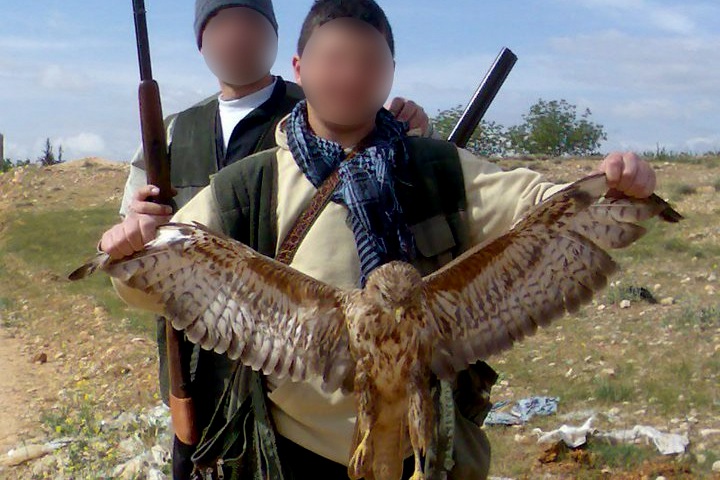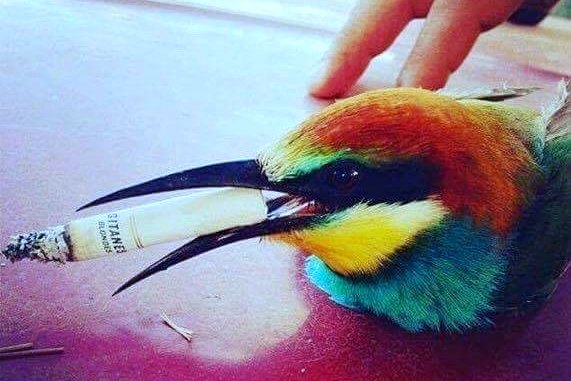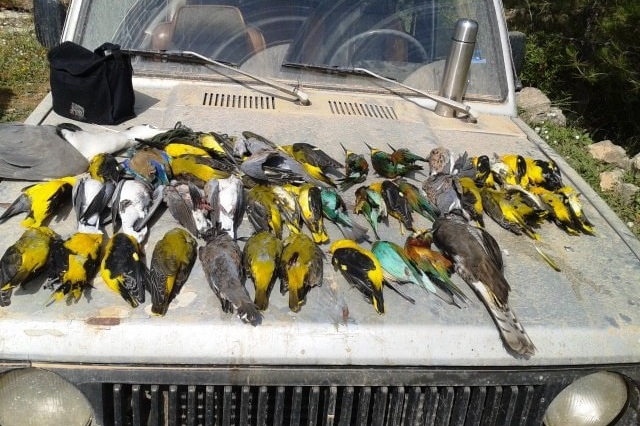Trophy hunters and selfies

'Selfie' culture is widespread in Lebanon, more than in any other country we operate in - self-representation on social media is evidentally of great importance. Lebanese poachers like to pose with their prey - the bigger and more colourful the better. Shot birds are often draped and photographed on the bonnets of the off-road vehicles. A hunt - so it seems - is only really successful when the trophy picture on Instagram, Facebook etc receives as many 'Likes' as possible.
In 2013, the CABS carried out a detailed evaluation of a total of 700 such trophy photos. Of the 13,100 birds shown, 11,200 were identified at species level. The spectrum includes 140 species - from songbirds such as ortolans, orioles and redstarts to sand martins, swallows, swifts, bee-eaters, nightjars white storks, great-white pelicans, lesser spotted eagles, red-footed falcons and Egyptian vultures, the list goes on...

Many of the photos are also extremely disturbing, many show shot birds that are still alive and in obvious distress, children pose with them, put sunglasses on the birds or cigarettes into the beak. They are a vivid reflection of the understanding of animal welfare in Lebanese society and show in a very clearly how much work still lies ahead of us.
Also the pride with which the poachers partly photograph themselves or their vehicles with legible license plates together with illegally shot animals or forbidden war weapons (e.g. rapid-fire automatic weapons like Kalashnikovs) leaves the viewer often speechless. The perpetrators lack any sense of shame or guilt and consider laws to be superfluous paperwork. Without education and enforcement to bring about sustainable understanding and application of the hunting conditions - the situation is spiralling out control.

The photos give an idea of the incredible damage that the poachers in Lebanon are doing to migratory bird populations. They show in detail that species which are highly endangered species in Europe are killed en masse in Lebanon. The pictures are particularly bona fide, precisely because they were made by the hunters themselves.
With an unusual move, the state is confronting this culture: The new hunting law passed in 2017 - expressly forbids posing with shot birds in front of the camera - unique in the world.






